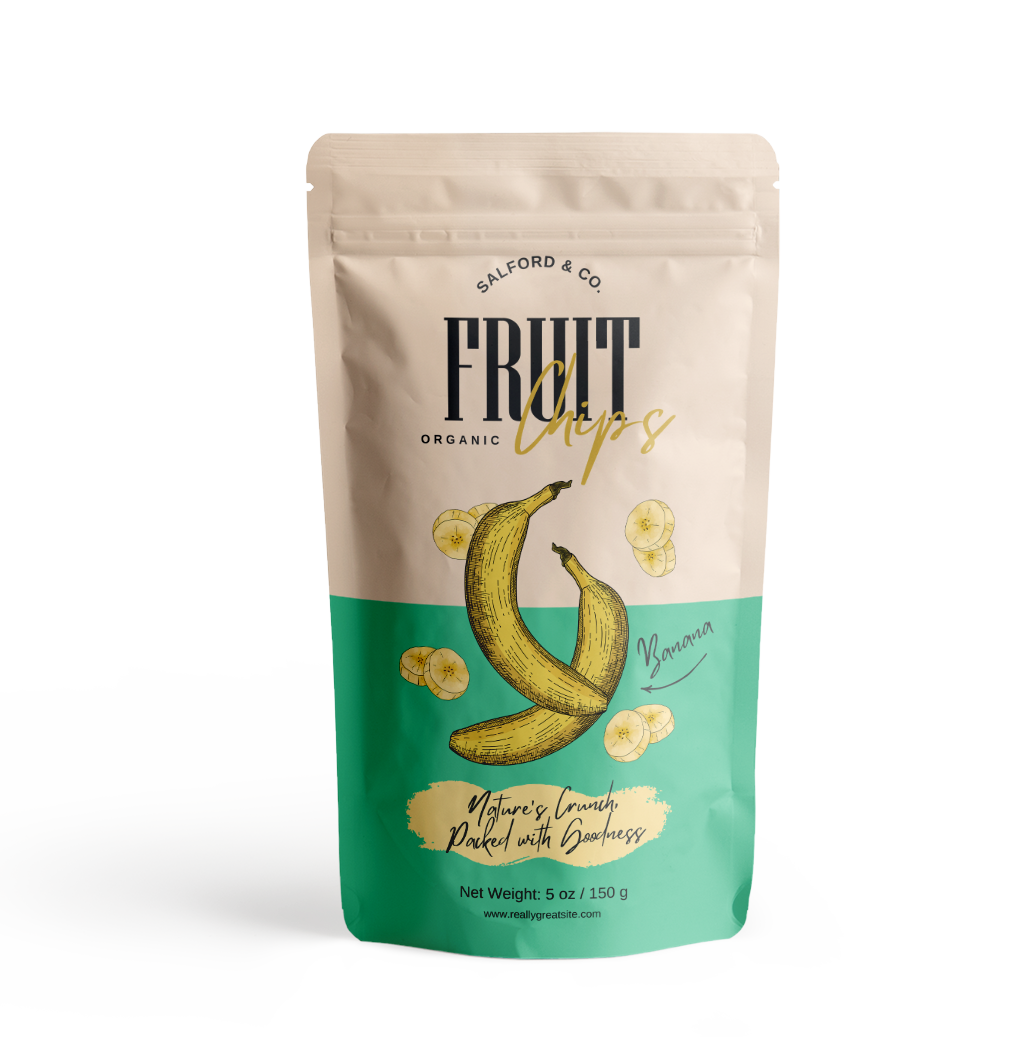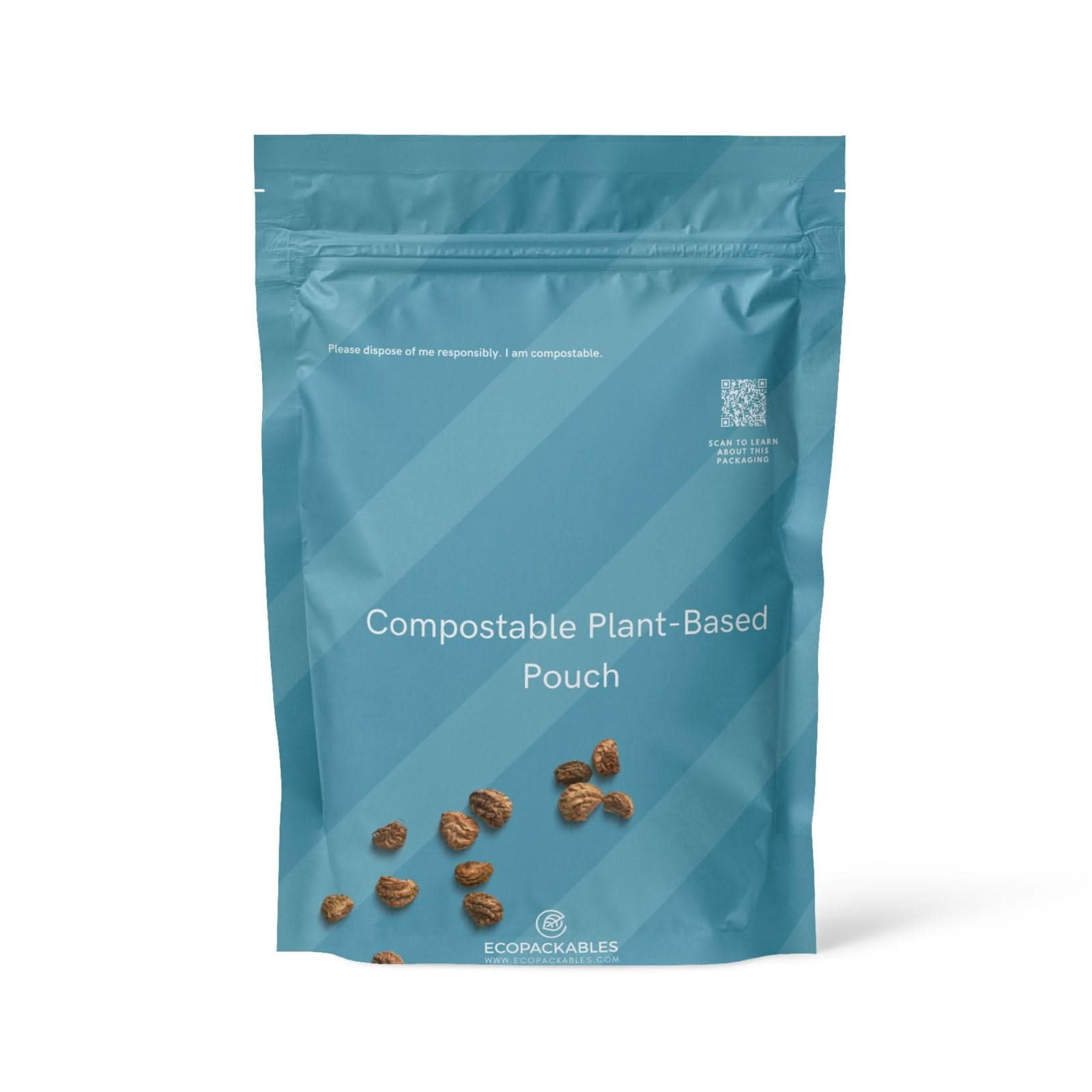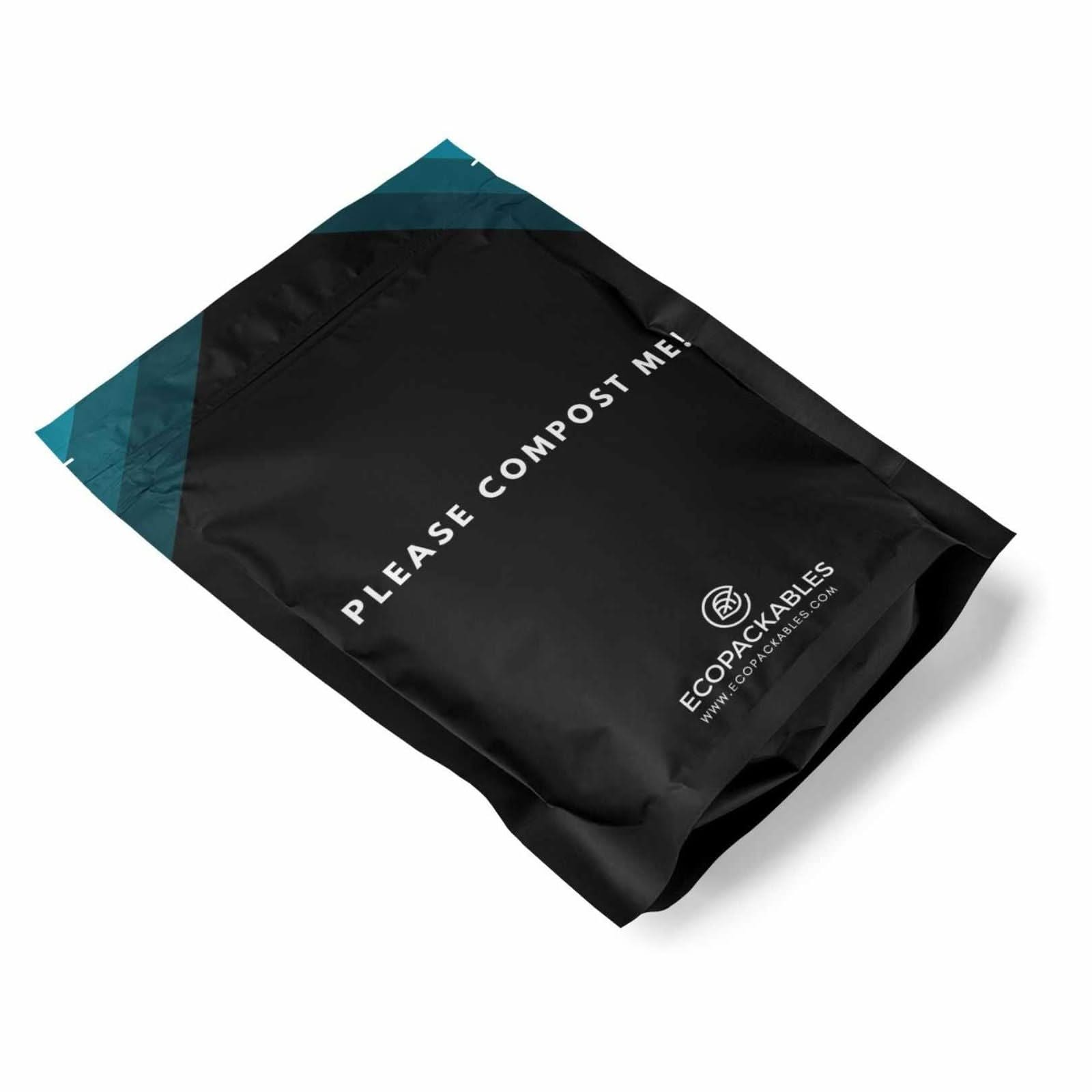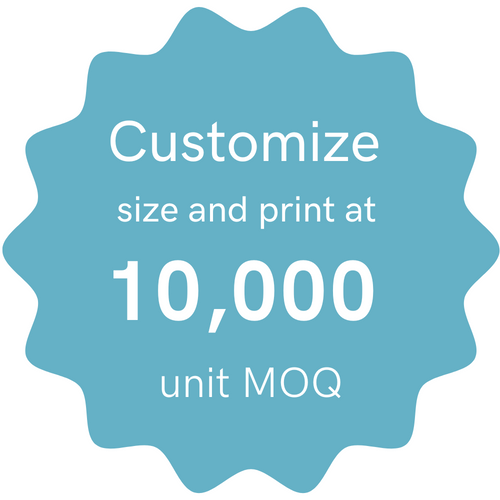Our Home Compostable Compostable Stand Up Pouches are a popular solution for small and medium-volume packaging. Made from our C20 laminate, they are fully biodegradable and certified by the BPI and TUV. Available at an MOQ of 5,000 units, we have a number of different options, each having different moisture barriers. Sizing, print, and features can be fully customized.
Our Material Options:
- Home Compostable
- Bio-Based PE Recyclable
- Post-consumer Recycled
- Home compostable w/ Kraft Paper Exterior
Add ons:
- Tear Notch
- Degassing Valve
- Windows
- Hang Hole for Retail
- Laser/Perforation cut
- Hang Hole for Retail
Finish:
- Gloss / Matte / Spot Matte
Inquire below to get started!
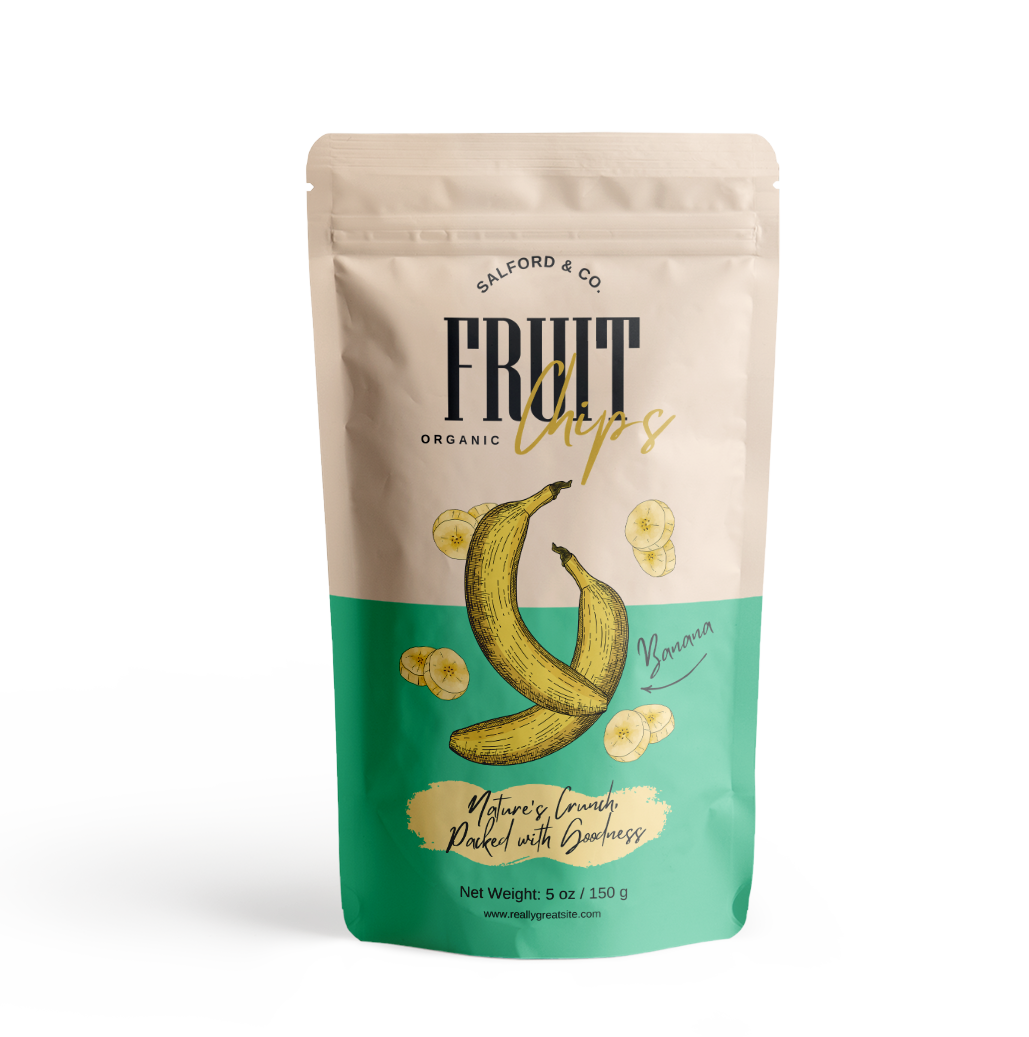
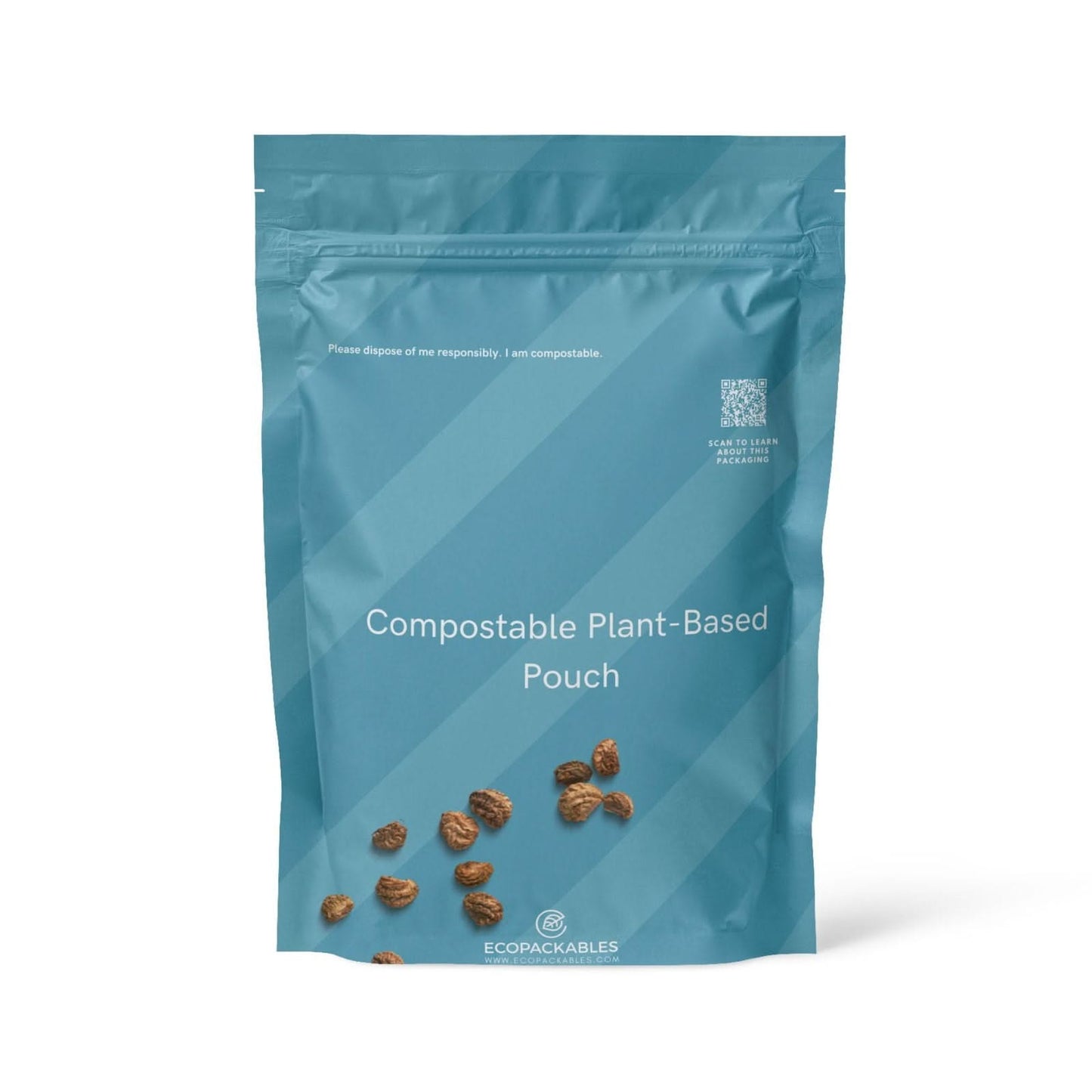
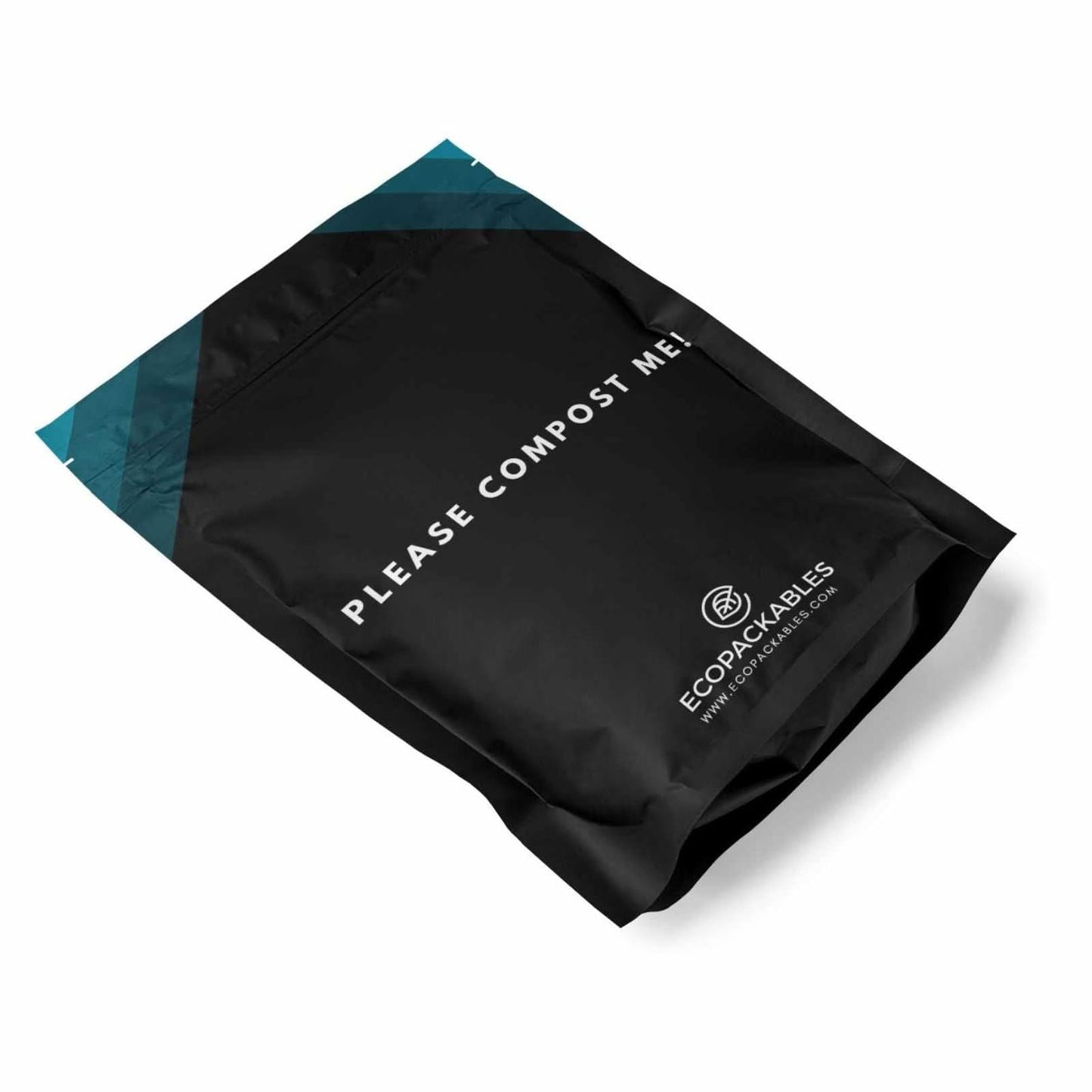
We Work With
Materials

EcoPackables D41 Film
Transparent film made from a unique blend of Cornstarch and PBAT, a bio-based polymer. Both sides are sealable and printable, with thickness ranging from 20-100μm. Used as single layer in laminates.

Recycled Kraft Paper
FSC-Certified Post-Consumer Recycled Paper that is printed on with non-toxic inks. Heavily customizable and avaialbe in 90-330gsm.

EcoPackables D42 Film
Semi-Opaque Compostable Film made from a unique blend of Cornstarch and PBAT, a bio-based polymer. Both sides are sealable and printable, with thickness ranging from 30-110μm. Colors can be customized.
More About This Product
These compostable stand-up pouches are the ideal alternative to traditional plastic bags. Perfect for medium-barrier applications like coffee, dried foods, powders, and nuts, every part of these pouches, including the zipper and film, is certified compostable. Free from toxic chemicals and microplastics, they offer a safe and sustainable packaging solution. If you're a brand aiming to meet sustainability targets or seeking standout retail packaging, these bags are for you! We also offer rollstock formats of the laminates. Please note, this product is not designed for continuous or frequent exposure to liquids, creams, or moisture. We recommend thorough testing under your anticipated conditions to ensure the material meets your needs and expectations before purchasing.

